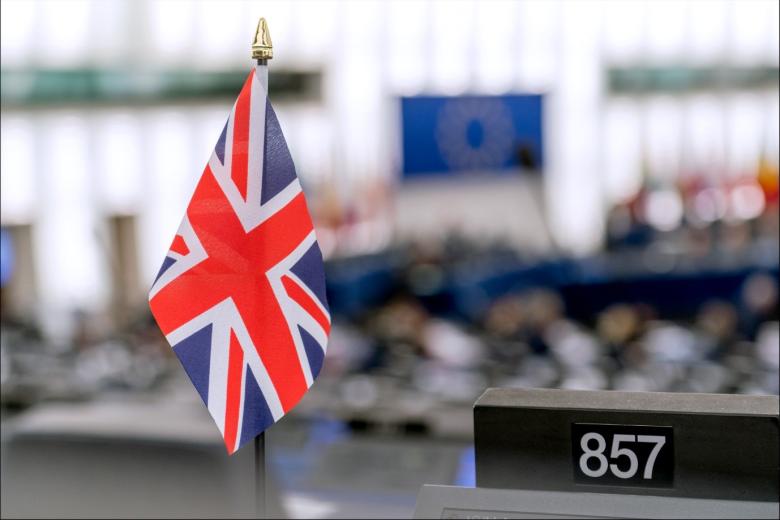Mexican standoff (part 2)
With the date of the United Kingdom’s withdrawal fast approaching, it is becoming increasingly evident that the British government still has no clear plan, relies on wishful thinking and is running out of viable options. To prevent a complete disaster, a much more targeted salvaging operation might be required.
Better Things To Do
Thus, Theresa May stays on – by default, limping to the finish line, as she no longer commands a majority or any meaningful authority within her party. Due to this absence of leadership, she is unable to fire recalcitrant cabinet ministers and call the Brexiteers’ bluff. The only source of consolation for her is the disorganized, ineffective state in which the Labour Party under opposition leader Jeremy Corbyn finds itself. Far from having used the momentum from its better-than-expected performance in the 2017 general election, Labour has gotten mired in internal arguments about the Single Market – perhaps reflecting the inherent contradiction of a party whose senior officials (with the notable exception of Corbyn and Shadow Chancellor John McDonnell) strongly favour remaining part of the European Union, whilst many Labour voters voted to leave the EU.
In essence, British politics (at least as far as Brexit is concerned) has become a Mexican standoff in which all participants can get harmed. The possibility of Brexit turning into a policy disaster is compounded by the European Union increasing its pressure upon the May Cabinet as well. The EU is now raising the possibility of the United Kingdom executing a disorderly withdrawal without a fully negotiated Withdrawal Agreement by 29 March 2019, as stipulated by Articles 50(2) and 50(3) TEU. The consequences of a “no deal” Brexit would most likely be rather substantially negative on the British economy, and certainly not be without its effects on the European Union, either. Then again, the EU has presented a highly professional, methodological and prepared image – in contrast to its British counterparts. Certainly, that also has to do with the fact that the EU is dealing with a range of other issues, as well as the complex dynamics of the politics within its own Member States: Italy just installed a decidedly right-wing government, Angela Merkel’s cabinet in Germany is teetering on the brink of collapse, President Macron is unable to shake off accusations of presidential overreach and unable to get his proposed Eurozone reforms off the ground (paired with plenty of strikes to provide added political seasoning) and Spain’s Pedro Sánchez might still have to contend with the possibility of a fresh election (in a year in which Sweden will also go to the polls in its parliamentary election). It is against this background that Brexit merely appears as a necessary nuisance to be dealt with. This recalls the atmosphere during the purported renegotiation of the UK’s relationship with the EU, carried out on the initiative of David Cameron, when the influx of illegal immigrants to Europe had become the major issue on the EU’s political agenda – thus possibly knocking Cameron’s calculus for a renegotiation of the Treaties completely off-balance. Additionally, the legal structure imposed by Article 50 TEU essentially gives the EU’s negotiators the best possible hand in this game of strategic poker.
On the legislative front, the aforementioned factionalism within the Conservative Party has been affecting the UK Parliament’s ability to actually legislate for the country’s withdrawal from the European Union. The principal piece of legislation (among a myriad of primary and secondary pieces of legislation that will need to be enacted to effect Brexit) is the European Union (Withdrawal) Bill – whose primary features include the repeal of the European Communities Act 1972, an end to the supremacy of EU law (thus ensuring that ECJ jurisprudence will no longer be binding on UK courts – and closing the route towards a preliminary ruling by the ECJ), a conferral of powers to the UK government to amend any secondary legislation whose operation could be affected by Britain’s withdrawal from the EU and a full transposition of EU into British law post-Brexit . Any retained EU law (mainly regulations, as well as other primary and secondary legislation enacted under section 2(2) of the European Communities Act 1972). The conferral of delegated powers was the approach deemed most appropriate by the UK government, considering the sheer amount of legislation that will have to be changed as a result of Brexit. Without a proper legal framework, any directly applicable EU law would automatically cease, leaving considerable insecurity in various fields of law upon Brexit becoming a reality. So far, so good.
The House of Lords, which has to agree to the bill becoming legislation, has attempted to substantially alter the nature of the bill – removing the exit date, mandating a parliamentary vote on the final EU/UK deal, requiring participation in the customs union, and the retention of environmental standards mandated by EU law. These amendments were duly voted down by the House of Lords last week, with the votes necessary to reach a majority being recruited from a group of around 15 Europhile MPs led by former Attorney General Dominic Grieve (yes, he who is now being attacked by extremist Brexit supporters for his French origins). In order to win the vote, Mrs May apparently promised that provision for a parliamentary vote would be made. Upon winning the vote in the House of Commons, Mrs May’s supporters were quick to emphasize that all that had been promised was an open mind regarding a final parliamentary vote on the Brexit deal.
High Stakes
This raised the ire of the pro-Europe group, with both sides suddenly standing off over the “meaningful vote”. The stakes for Mrs May’s survival could not have been higher: in line with the “ping-pong” phase of the legislative process of the United Kingdom, the Withdrawal Bill moved back to the House of Lords (which, barring use of the Parliament Acts 1919/1949, has to agree) – which promptly reinserted the amendments that had been voted down by the House of Commons. Upon that happening, the bill returned to the House of Commons on Wednesday – where the government made a number of last-minute concessions (once again), resulting in the rather unique sight of Mr Grieve voting against his own amendment. Consequently, the amendment regarding a “meaningful” parliamentary vote on Brexit was defeated by 319 votes to 303. Subsequently, the House of Lords ratified the amendments and, therefore, the bill which will upon receipt of the Royal Assent by Queen Elizabeth II be known as the European Union (Withdrawal) Act 2018. The amendment would have essentially transferred leadership of the Brexit process to Parliament, in the event that a final deal with the EU had not been tabled for ratification by 21 January 2019. With the Act’s passage, a “No Deal” Brexit firmly remains a plausible possibility.
By renouncing the possibility of a firmly binding vote, Parliament has essentially handed over most of the control of the Brexit process to Prime Minister May and her cabinet instead. What Parliament is likely to get is a final “take it or leave it”-style, en bloc vote on the entire deal – with the government acknowledging in a ministerial statement (shortly before the vote on the Grieve Amendment) that it would be for the Speaker of the House of Commons, John Bercow to determine whether a motion (supposed to be in neutral terms) on the Brexit process would include the possibility of amendment by Parliament. Compared to the stated aspirations of Mr Grieve, this represents a major abdication of parliamentary responsibility, and a shift in executive-legislative relations towards the UK government. This conclusion is not alleviated by the concessions enacted by Parliament (in lieu of the Parliament-run Brexit process).
But more battles lie ahead for Mrs May: if she reneges on her apparent assurances towards the Remain camp within her own party, she risks losing her parliamentary working majority (even once the Democratic Unionists are included, as the Europhile rebels may choose to leave the Conservative parliamentary party and sit as independents). Likewise, if she acquiesces to the demands for a firm customs union (let alone retention of Single Market membership), she may trigger a leadership challenge by the likes of Mr Rees-Mogg (whose chances, in the estimation of this author, are overrated by media outlets). Win or lose, such a challenge would severely damage Mrs May’s authority, forcing her early retirement. In either scenario, a general election later this year looks increasingly likely – valuable time that the UK will lose in negotiating an equitable Withdrawal Agreement.
Finally, even more ominously for the UK, merely 9 months are left for Britain to leave. There is even less time for all the issues to be dealt with – since the Withdrawal Agreement will need to be ratified. Unless the European Council (the assembly of the heads of state and government of the EU) formally extends the deadline unanimously – if even one Member State objects, the request to extend fails. Thus, two years after the national referendum which determined the wish of a plurality of the British people to leave the European Union, Britain finds itself at a precipice, with little incentive for the European Union to play nice. Ironically, the UK is now truly dependent on the goodwill of others.
| Read part 1 of this diptych, image by Flickr - Tiocfaidh ár lá 1916 More blogs on Law Blogs Maastricht |
-
Faites vos jeux
Britain gets a hard-fought extension, with incalculable consequences.

-
Change of course?
With options running out before the United Kingdom faces yet another critical deadline, Prime Minister Theresa May tries one last (desperate) gamble to “save Brexit” – reaching out to the Labour Party. Will it be successful? Which are the options remaining on the table? What could happen next? Here...

-
The Ides of March: The United Kingdom gets one last chance. Will it use it?
Staying just a little bit longer? Or for good?
Summary: With the European Council throwing a lifeline to the United Kingdom, all options are back on the table. Rather than taking back control, the United Kingdom now finds itself dependent on the remainder of the European Union – with the absence of...